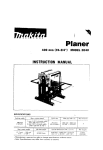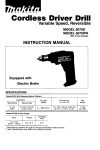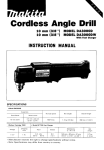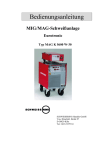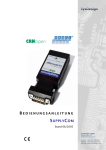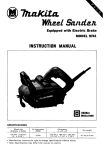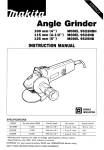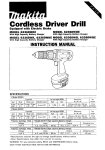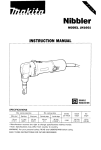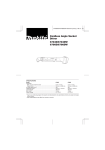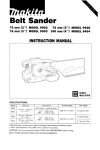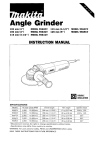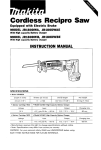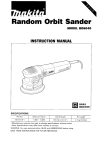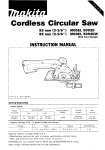Download Makita 5600DW Instruction manual
Transcript
n 160 mm (6-1/4") MODEL 5600DW With Fast Charger INSTRUCTION MANUAL SPEC IFICAT10NS Max cutting depth Blade diametcr 450 I 160 m m (6~1i4"1 Battery cartridge 1000 108V I I 36 m m il3I8"i speed 1 I 55 mm 12118"i 1,000 Rimin Net Overall length No load 90' I 256 m m 1lO"i weight I Model DClOOO Fast charger Dimensions iL x W x HI 1Hi I A C only 50Hr 60Hr I DC 108V 1 211 mm x 130 m m x 88 m m 181/4 x 5 1 8 x 3 1 j 2 I * Manufacturer reserves the right to change specifications without notice. Note: Specifications may differ from country t o country. 3.5 kg 17 7 lbsi jNet weight I 2 7 kq 16 lbsi IMPORTANT SAFETY INSTRUCTIONS (For All Tools) WARNING: WHEN USING ELECTRIC TOOLS, BASIC SAFETY PRECAUTIONS SHOULD ALWAYS BE FOLLOWED TO REDUCE THE RISK OF FIRE, ELECTRIC SHOCK, AND PERSONAL INJURY, INCLUDING THE FOLLOWING: READ ALL INSTRUCTIONS. 1. KEEP WORK AREA CLEAN. Cluttered areas and benches invite injuries. 2. CONSIDER WORK AREA ENVIRONMENT. Don't use power tools in damp or wet locations. Keep work area well lit. Don't expose power tools t o rain. Don't use tool in presence of flammable liquids or gases. 3. KEEP CHILDREN AWAY. All visitors should be kept away from work area. Don't let visitors contact tool or extension cord. 4.STORE IDLE TOOLS. When not in use, tools should be stored in dry, and high or locked-up place - out of reach of children. 5. DON'T FORCE TOOL. It will do the job better and safer at the rate for which it was intended. 6. USE RIGHT TOOL. Don't force small tool or attachment t o do the job of a heavy-duty tool. Don't use tool for purpose not intended. 7. DRESS PROPERLY. Don't wear loose clothing or jewelry. They can be caught in moving parts. Rubber gloves and n o n s k i d footwear are recommended when working outdoors. Wear protective hair covering t o contain long hair. 8. USE SAFETY GLASSES. Also use face or dust mask if cutting operation is dusty. 9.DON'T ABUSE CORD. Never carry tool by cord or yank it t o disconnect from receptacle. Keep cord from heat, oil, and sharp edges. IO. SECURE WORK. Use clamps or a vise t o hold work. It's safer than using your hand and it frees both hands t o operate tool. 11. DON'T OVERREACH. Keep proper footing and balance at all times. 12.MAINTAIN TOOLS WITH CARE. Keep tools sharp and clean for better and safer performance. Follow instructions for lubricating and changing accessories. Inspect tool cords periodically and if damaged, have repaired by authorized service facility. Inspect extension cords periodically and replace if damaged. Keep handles dry, clean, and free from oil and grease. 13.DISCONNECT TOOLS. When not in use, before servicing, and when changing accessories, such as blades, bits, cutters. 2 14. REMOVE ADJUSTING KEYS AND WRENCHES. Form habit of checking t o see that keys and adjusting wrenches are removed from tool before turning it on. 15. AVOID UNINTENTIONAL STARTING. Don‘t carry plugged-in tool with finger on switch. Be sure switch is OFF when plugging in. 16. OUTDOOR USE EXTENSION CORDS. When tool is used outdoors, use only extension cords intended for use outdoors and so marked. 17. STAY ALERT. Watch what you are doing, use common sense. Don’t operate tool when you are tired. 18. CHECK DAMAGED PARTS. Before further use of the tool, a guard or other part that is damaged should be carefully checked t o determine that it will operate properly and perform its intended function. Check for alignment of moving parts, binding of moving parts, breakage of parts, mounting, and any other conditions that may affect its operation. A guard or other part that is damaged should be properly repaired or replaced by an authorized service center unless otherwise indicated elsewhere in this instruction manual. Have defective switches replaced by authorized service center. Don’t use tool if switch does not turn it on and off. 19. GUARD AGAINST ELECTRIC SHOCK. Prevent body contact with grounded surfaces. For example; pipes, radiators, ranges, refrigerator enclosures. 20. REPLACEMENT PARTS. When servicing, use only identical replacement parts. VOLTAGE WARNING: Before connecting the tool t o a power source (receptacle, outlet, etc.) be sure the voltage supplied is the same as that specified on the nameplate of the tool. A power source with voltage greater than that specified for the tool can result in SERIOUS INJURY t o the user - as well as damage t o the tool. If in doubt, DO NOT PLUG IN THE TOOL. Using a power source with voltage less than the nameplate rating is harmful t o the motor. 3 IMPORTANT SAFETY INSTRUCTIONS I. SAVE THESE INSTRUCTIONS - This manual contains important safety and operating instructions for battery charger. 2 . Before using battery charger, read all instructions and cautionary markings on (1) battery charger, (2)battery, and (3)product using battery. 3. CAUTION - To reduce risk of injury, charge only MAKITA type rechargeable batteries. Other types of batteries may burst causing personal injury and damage. 4. Do not expose charger t o rain or snow. 5 . Use of an attachment not recommended or sold by the battery charger manufacturer may result in a risk of fire, electric shock, or injury t o persons. 6. To reduce risk of damage t o electric plug and cord, pull by plug rather than cord when disconnecting charger. 7. Make sure cord is located so that it will not be stepped on, tripped over, or otherwise subjected t o damage or stress. 8. A n extension cord should not be used unless absolutely necessary. Use of improper extension cord could result in a risk of fire and electric shock. If extension cord must be used, make sure: a. That pins on plug of extension cord are the same number, size, and shape as those of plug on charger; b. That extension cord is properly wired and in good electrical condition; and c. That wire size is at least as large as the one specified in the table below. TABLE 1 RECOMMENDED MINIMUM AWG SIZE FOR EXTENSION CORDS FOR BATTERY CHARGERS 4 Length of Cord (Feet) 25 50 100 150 AWG Size of Cord 18 18 18 16 ADDITIONAL SAFETY RULES FOR CHARGER & BATTERY CARTRIDGE 1. Do not charge Battery Cartridge when temperature is BELOW 10°C (50°F) or ABOVE 40°C (104°F). 2. Do not attempt t o use a step-up transformer, an engine generator or DC power receptacle. 3. Do not allow anything t o cover or clog the charger vents. 4. Do not short the battery cartridge. A battery short can cause a large current flow, overheating, possible burns and even a breakdown. 5. Do not store the tool and Battery Cartridge in locations where the temperature may reach or exceed 50°C (122°F). 6. Do not incinerate the Battery Cartridge even if it is severely damaged or is completely worn out. The battery cartridge can explode in a fire. ADDITIONAL SAFETY RULES 1. Keep Guards In Place and In Working Order. Never wedge or tie lower guard open. Check operation of lower guard before each use. Don't use if lower guard does not close briskly over saw blade. CAUTION: If saw is dropped, lower guard may be bent, restricting full return. 2. Keep Blades Clean and Sharp. Sharp blades minimize stalling and kickback. 3. DANGER: Keep Hands Away From Cutting Area. Keep hands away from blades. Don't reach underneath work while blade is rotating. Don't attempt t o remove cut material when blade is moving. CAUTION: Blades coast after turn off. 4. Support Large Panels. Large panels must be supported as shown in Fig. 1 to minimize the risk of blade pinching and kickback. When cutting operation requires the resting of the saw on the work piece, the saw shall be rested on the larger portion and the smaller piece cut off. 1 I . To avoid kickback, do support board or panel near the cut. Don't support board or panel away from the cut. Fig. 1 Fig. 2 5 5. Use Rip Fence. Always use a fence or straight edge guide when ripping. 6. Guard Against Kickback. Kickback occurs when the saw stalls rapidly and is driven back towards the operator. Release switch immediately if blade binds or saw stalls. Keep blades sharp. Support large panels as shown in Fig. 1. Use fence or straight edge guide when ripping. Don‘t force tool. Stay alert exercise control. Don’t remove saw from work during a cut while the blade is moving. 7. Lower Guard. Raise lower guard with the retracting handle. 8. Adjustments. Before cutting be sure depth and bevel adjustments are tight. 9. Use Only Correct Blades In Mounting. Don’t use blades with incorrect size holes. Never use defective or incorrect blade washers or bolts. IO. Avoid Cutting Nails. Inspect for and remove all nails from lumber before cutting. 11. When operating the saw, keep the cord away from the cutting area and position it so that it will not be caught on the workpiece during the cutting operation. Operate with proper hand support, proper workpiece support, and supply cord routing away from the work area. A typical illustration of proper hand support, workpiece support, and supply cord routing. Fig. 3 WARN ING : It is important t o support the workpiece properly and t o hold the saw firmly t o prevent loss of control which could cause personal injury. Fig. 3 illustrates typical hand support of the saw. 6 12. Place the wider portion of the saw base on that part of the workpiece which is solidly supported, not on the section that will fall off when the cut is made. As examples, Fig. 4 illustrates the RIGHT way t o cut off the end of a board, and Fig. 5 the WRONG way. If the workpiece is short or small, clamp it down. Don’t try t o hold short pieces by hand! I I Fig. 4 - RIGHT Fig. 5 ~~ WRONG 13. Never attempt t o saw with the circular saw held upside down in a vise. This is extremely dangerous and can lead t o serious accidents. Fig. 6 14. Before setting the tool down after completing a cut, be sure that the lower (telescoping) guard has closed and the blade has come to a complete stop. SAVE THESE INSTRUCTIONS. 7 HOW TO USE Installing or removing battery cartridge *Use the Fast Charger DCIOOO to charge the Battery Cartridge 1000. The battery cartridge is housed within the circular saw. To remove the cartridge, turn the battery retainer in the arrow direction, grasp the cartridge caref uIIy and withdraw from the tool. Fig. 4 *After charging i s finished, fit the battery cartridge back into the tool. Slide it all the way inside the tool. Then turn the battery retainer back down so as t o secure the cartridge in place. I Fig. Charging *Plug the fast charger into your power source. Insert the battery cartridge so that the plus and minus terminals on the battery cartridge are on the same sides as their respective markings on the fast charger. I I Fast charger DCloOO *I y I (+) ( - ) Terminal markings I Fig. 6 Insert battery cartridge fully into the port Battery cartridge 1000 so that it rests on the charger port floor. Check to see that the charging light comes on. When it goes out, you may re- I move the fully charged battery cartridge. After charging, unplug the charger from the power source. \ Charging light Fig. *Sometimes the charging light will not come on after you insert a cartridge from a justoperated tool. Let the cartridge cool off for a while. Then re-insert it and try to charge it once more. I f you wish to charge two battery cartridges, allow 15 minutes between charging on the fast battery charger. Installing or removing blade CAUTION : Be sure that the battery cartridge has been removed from the tool. * T o remove the blade. use the wrench to hold the outer flange in place while loosening the hex bolt counterclockwise with the socket wrench. I I Fig. 8 9 0 Next, remove the outer flange and, with the safety guard retracted fully, take the blade off the shaft. I Fig. ! 0 Install the balde following the removal procedure in reverse. The order of installation should be: inner flange, blade, outer flange, hex bolt. Tighten the hex bolt securely. Be sure the blade i s installed with teeth pointing up a t the front of the tool. /Hex bolt / Outer flange / Inner flange Fig. I( 0 The circular saw shaft accepts blades with a hole diameter of 5/8". CAUTION : Use only the Makita socket wrench to secure the hex bolt on the blade. Adjusting cutting depth Loosen thB wing nut. Now the base may be moved up or down#.At a desired position, secure the base by tightening the wing nut. Fig. 1 10 Bevel cutting 0Loosen the wing nut on the bevel scale plate on base front. Set for a desired angle (0 - 45') by tilting accordingly, then tighten the wing nut firmly. L I Fig. 12 CAUTION : I t is extremely dangerous to cut with the saw when the wing nut has not been fully tightened. Always secure the wing nut carefully after adjusting cutting depth. Sighting 0Use the right notch of the top guide for straight cuts. The left notch is for 45" bevel cuts. For45' Zuqbstraight bevel cuts AI Top guide Base plate \ Fig. 1: Top guide Fig. 1 Switch operation The trigger switch comes with a lock-off plate. When the lock-off plate i s pulled back in the arrow direction, the trigger can be pulled to turn the tool on, and released to turn it off. 0 Fig. 15 CAUTION : Before inserting the battery cartridge into the tool, always check to see that the trigger switch actuates properly and returns to the "OFF" position when released. 11 Operation .Hold the tool firmly. Set the base plate on the workpiece to be cut without the blade making any contact. Then turn the tool on. Now simply move the tool forward over the workpiece surface, keeping it flat and advancing smoothly until the sawing i s completed. To get clean cuts, keep your sawing line straight and your speed of advance uniform. Y / Base Fig. 1 Overload protector .The overload protector automatically cuts out to break the circuit and the button pops out, whenever heavy work is prolonged. Wait 20-30 seconds before pressing the restart button (on housing in back) to resume operation. Your finger should not be on the trigger when you press the restart button, however. Fig. 1 MAINTENANCE CAUTION : Always be sure that the tool is unplugged and the battery cartridge is removed before attempting to perform inspection or maintenance. To maintain product SAFETY and RELIABILITY, repairs, maintenance or adjustment should be performed by Makita Authorized or Factory Service Centers always using Makita replacement parts. 12 ACCESSORIES CAUTION : These accessories or attachments are recommended for use with your Makita tool specified i n this manual. The use of any other accessories or attachments might present a risk of injury to persons. The accessories or attachments should be used only in the proper and intended manner, Battery cartridge (1000) Fast charger (DClOOO) Carbide-tipped saw blade ( P a r t No. 721256-9) Fastest, smoothest, longer sawing without blade sharpening. Cuts wood, dry wall, plastic, hardwood, etc. 0 Guide rule (Rip fence) (Part No. 164095-8) 0 Wrench 22 (Part No. 781011-1) 0 Socket wrench 9 (Part No. 782209-3) 13 Mar - 25 85 EN 160 mm (6-1/4") CORDLESS CIRCULAR SAW Model 5600D Note: The switch and other part configuratlons may differ from country to country. 14 Mar MODEL 5fi00D $tD ",',:I ~ i1 1 1 4 1 5 6 1 R 9 1 1 2 1 1 1 12 13 14 15 16 1 1 18 19 3 1 I 1 1 1 1 20 21 22 23 24 25 1 1 1 1 ' 4 1 1 DESCRIPTION MACHINE MACEE 1 1 $& ",',:I DESCRIPTION Hex Flange Head Bolt M S x l 7 IWith W a i h e r l Outer Flange 45 Inner Flange 4 5 Spindle Retaining Ring S 38 Safety Cover Pan Head Screw M 5 x 1 6 [With Washeil Wing Nut M6 Spring Washer 6 30 1 1 ~ Pan Head Screw M 4 x 5 5 (With Washer1 Pan Head Screw M f i x 2 0 Rubber Sleeve 6 Bearing B O X Ball Bearing 6001LLB Flat Washer 12 Retaining Ring S 12 c o m p r e w o n Sprlllg 19 Clutch C d m Flatwarher12 spur Gear 69 s m oaii 4 n Pin 4 BdtterylOOO 36 37 38 39 40 41 42 43 44 45 46 47 1 3 1 1 1 1 1 1 1 1 1 1 Pan Head Screw M 5 r 5 5 1Wiftt Wri\hPrJ MOW^ nouslrrrl Terminal Terminal Support Lock Off Platc CamprPssloll Spr,ng 3 Switch Pan Head Screw M4r20 IWitli W a \ h r r l Thrurf Needle G a u g r 1224 Washer 1 2 2 4 s netdlning nlniJ Ball Bearlnq 6 0 b 12 Gear 1 6 - 6 1 Gear Housing Muto, Handle Cover Pan Head S c r e w M 5 r 1 6 I W i l h WaCherl F l a t Washer 5 Co"lprei<l"" SprJrny 1 1 Thin Washer 10 Battery R e f a i n ~ r Base C a p Squarp Neck Bolt M 6 x 2 0 Wmg Bolt M6x15 57 58 1 1 Compression Sprlnq 7 Winq Nut M6 Spring Washer 6 Flat Washer 6 S ~ r ~ nPin o 5 36 25 85 EN MAKITA LIMITED ONE YEAR WARRANTY Warranty Policy Every Makita tool is thoroughly inspected and tested before leaving the factory. It is warranted t o be free of defects from workmanship and materials for the period of ONE YEAR from the date of original purchase. Should any trouble develop during this one-year period, return the COMPLETE tool, freight prepaid, t o one of Makita’s Factory or Authorized Service Centers. If inspection shows the trouble is caused by defective workmanship or material, Makita will repair (or at our option, replace) without charge. This Warranty does not apply where: repairs have been made or attempted by others: repairs are required because of normal wear and tear: The tool has been abused, misused or improperly maintained; alterations have been made t o the tool. IN NO EVENT SHALL MAKITA BE LIABLE FOR ANY INDIRECT, INCIDENTAL OR CONSEQUENTIAL DAMAGES FROM THE SALE OR USE O F THE PRODUCT. THIS DISCLAIMER APPLIES BOTH DURING AND AFTER THE TERM O F THIS WARRANTY. MAKITA DISCLAIMS LIABILITY FOR ANY IMPLIED WARRANTIES, INCLUDING IMPLIED WARRANTIES O F “MERCHANTABILITY” AND “FITNESS FOR A SPECIFIC PURPOSE,” AFTER THE ONE-YEAR TERM O F THIS WARRANTY. This Warranty gives you specific legal rights, and you may also have other rights which vary from state t o state. Some states do not allow the exclusion or Limitation of incidental or consequential damages, so the above limitation or exclusion may not apply t o you. Some states do not allow limitation on how long an implied warranty lasts, so the above limitation may not apply t o you. P € f u & & i c ~ , u d . 11-8, 3-chome, Sumiyoshi-cho, Anjo, Aichi 446, Japan 883412C062 PRINTED I N JAPAN 1990 - 10 - N
















